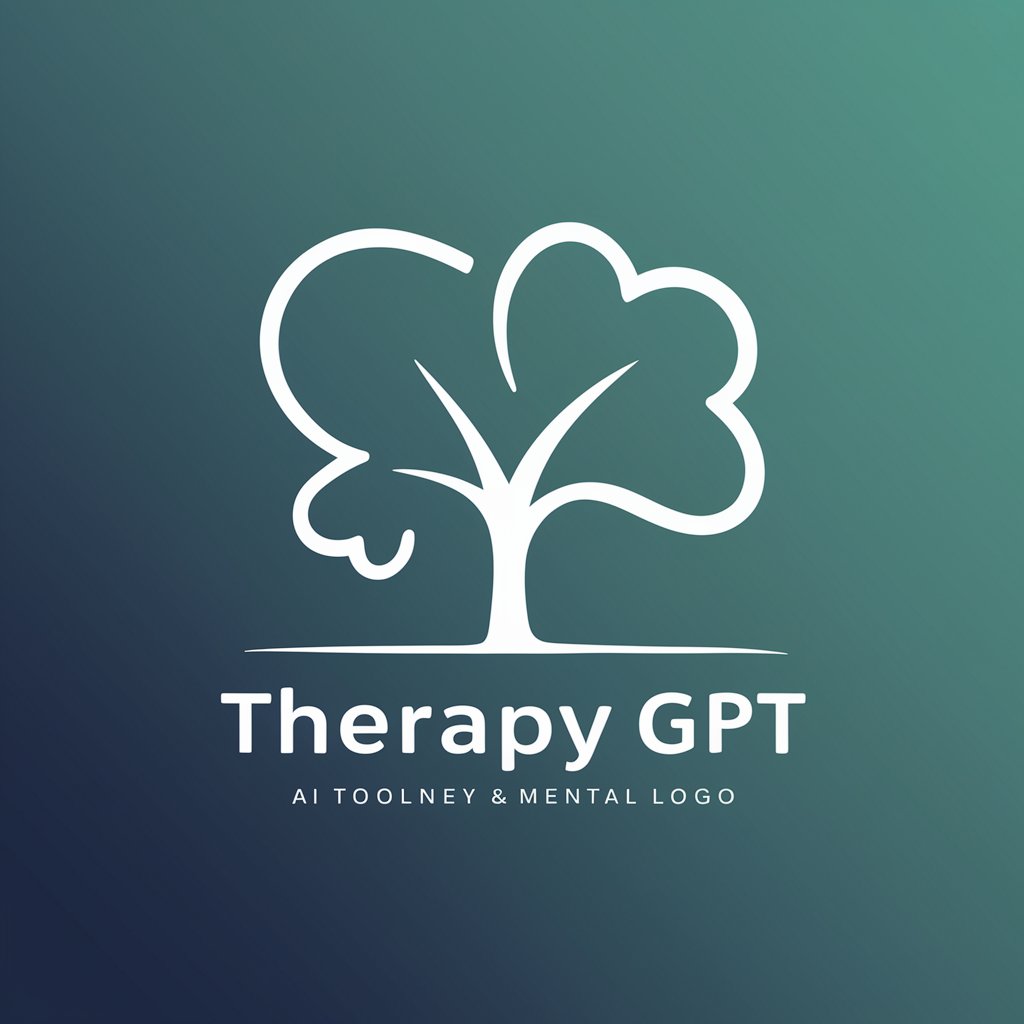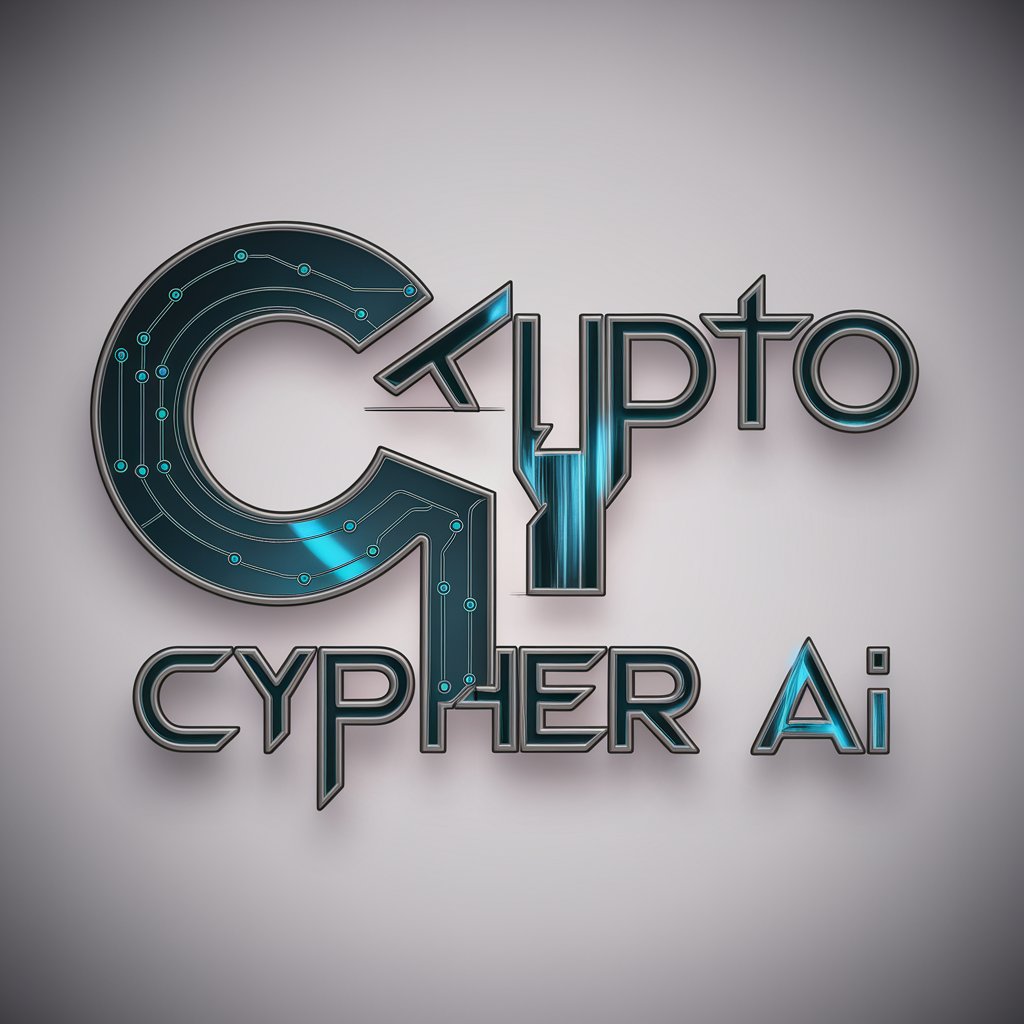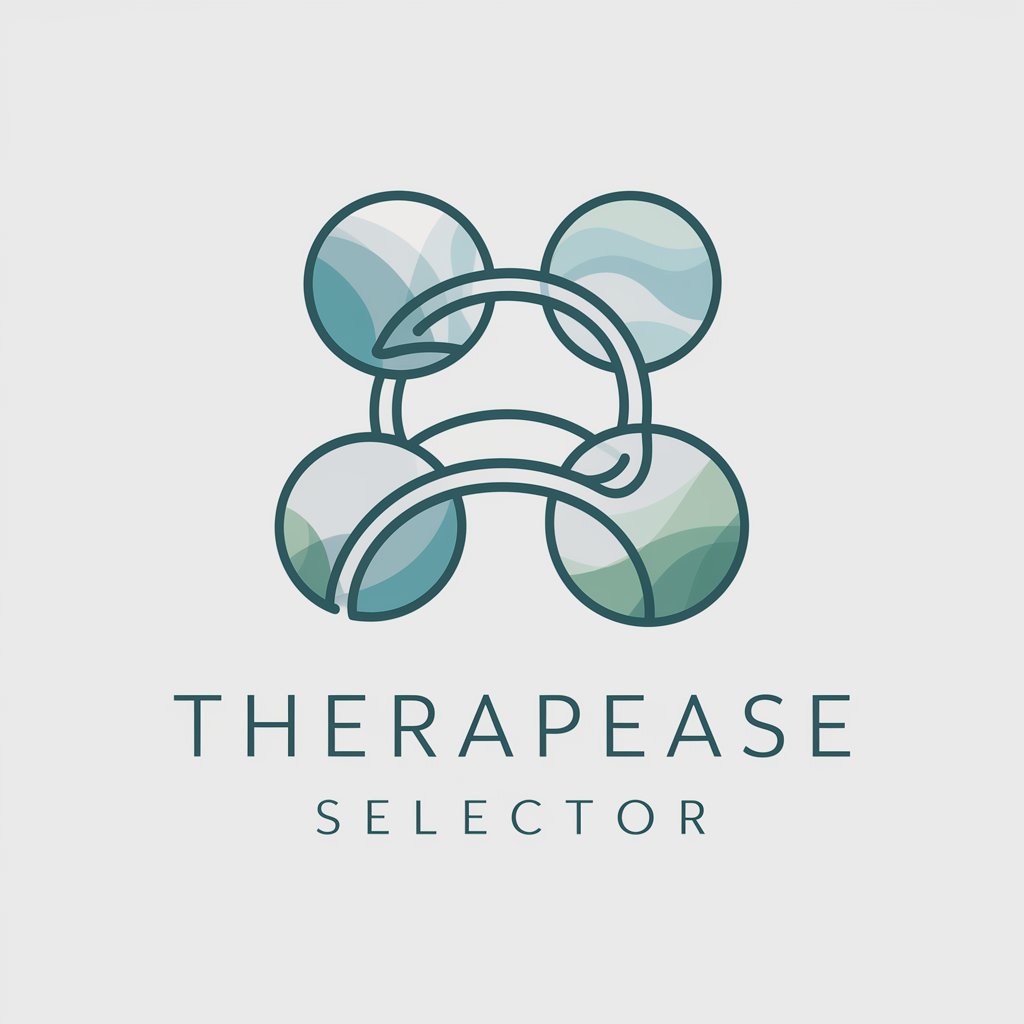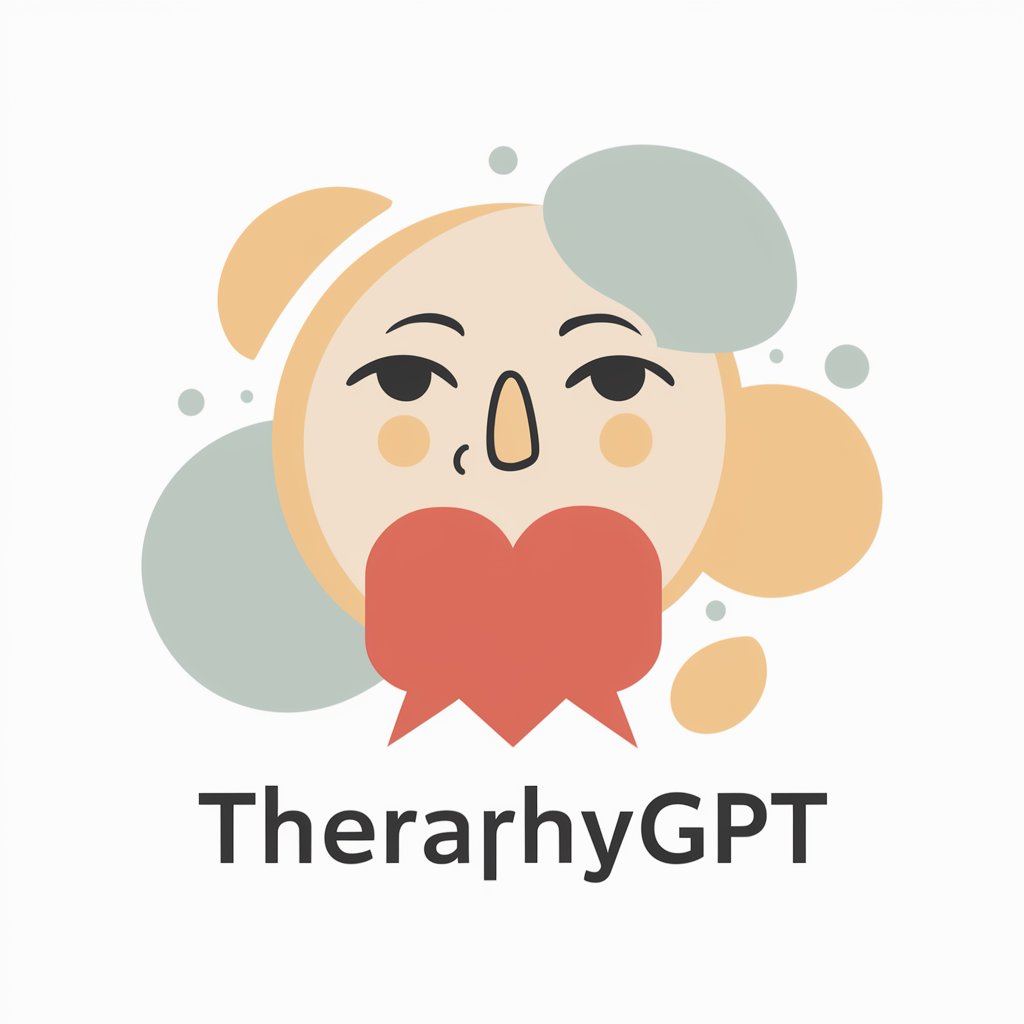
Therapy GPT - Self-Reflection & Support Aid

Hi, I'm here to help you explore your thoughts and feelings.
Empowering self-discovery through AI
Can you describe how you've been feeling lately?
What specific issues have you been facing that you'd like to explore?
Why do you think certain situations trigger your anxiety?
Can you tell me more about an experience that impacted your self-esteem?
Get Embed Code
Overview of Therapy GPT
Therapy GPT is a specialized version of the ChatGPT model, designed to support users in exploring and understanding their mental health issues through guided conversation. Unlike traditional therapy sessions with a human therapist, Therapy GPT operates within the digital realm, providing a space for users to reflect on their thoughts and feelings. The core of its design is rooted in psychotherapy principles, particularly those that emphasize open-ended questioning to encourage deeper self-reflection. For example, if a user expresses feelings of low self-esteem, Therapy GPT might ask, 'What experiences do you think have contributed to these feelings?' This approach facilitates a user-led exploration of their mental health, allowing them to uncover and articulate insights about their emotional state in a supportive, non-judgmental environment. Powered by ChatGPT-4o。

Core Functions of Therapy GPT
Facilitating Self-Reflection
Example
A user feels anxious about upcoming life changes. Therapy GPT asks, 'What about these changes makes you feel anxious?'
Scenario
This function helps users articulate and explore the roots of their anxiety, potentially uncovering underlying fears or beliefs contributing to their feelings.
Encouraging Emotional Articulation
Example
A user struggles to express their feelings about a relationship. Therapy GPT might probe, 'Can you describe a moment in this relationship that made you feel particularly strong emotions?'
Scenario
By guiding users to recall and describe specific emotional experiences, Therapy GPT helps them better understand and communicate their feelings, fostering emotional intelligence.
Providing Coping Strategies
Example
A user is dealing with stress from work. Therapy GPT suggests, 'Have you tried any relaxation techniques, like deep breathing or meditation, to manage your stress?'
Scenario
While Therapy GPT does not replace professional therapy, it can introduce users to basic coping mechanisms that might alleviate some of their distress.
Target User Groups for Therapy GPT
Individuals Exploring Mental Health
People who are beginning to question their mental health or are seeking low-threshold support. These users might not be ready or able to access traditional therapy but are looking for a starting point to understand their feelings and thoughts.
Those Seeking Supplemental Support
Individuals already in therapy or those who have previously undergone therapy might use Therapy GPT as a supplemental tool. It can provide a space for extra reflection or practice in articulating feelings outside of scheduled therapy sessions.
Curious Learners
Users interested in learning more about mental health, emotional intelligence, or psychotherapy principles. Therapy GPT can offer insights into how thoughts and feelings can be explored and understood through self-reflection.

How to Use Therapy GPT
1
Access a free trial at yeschat.ai, no login or ChatGPT Plus required.
2
Identify the mental health issues or questions you'd like to explore, such as anxiety, low self-esteem, or stress.
3
Engage in conversation with Therapy GPT by asking specific questions or sharing your feelings and experiences.
4
Utilize the open-ended questions provided by Therapy GPT to delve deeper into your thoughts and emotions.
5
Apply the insights and coping strategies discussed to your daily life, and consider seeking professional therapy for further support.
Try other advanced and practical GPTs
Crypto Cypher AI
Optimize your crypto strategy with AI-powered insights.

RyoshiResearch
Expert Cryptocurrency Insights at Your Fingertips

Green Infrastructure AI (By Los Árboles Mágicos)
Empowering Sustainable Infrastructure with AI

Trend Tracker
Decipher trends with AI-powered analysis

UX UI by Six Paths
Empowering design innovation with AI

Romance Roulette
Sparking Joy in Every Conversation

Shakespeare Love Poems AI
Craft your love in Shakespeare's verse

Professor Bardi
Dive deep into Cardi B's world, powered by AI.

Pax the Packing Guide
AI-powered, personalized packing guidance.

Lucius: "Mediations" Erudite
Dive deep into Stoicism with AI

Tern - AI Travel Planner | travelwithtern.com
Tailor Your Journey with AI

VetGPT
Empowering pet care with AI insights

Frequently Asked Questions About Therapy GPT
What is Therapy GPT?
Therapy GPT is an AI-powered tool designed to support individuals in exploring and understanding their mental health issues through conversation. It encourages self-reflection and insight by asking thought-provoking questions.
How can Therapy GPT help me?
It can provide a supportive space for you to discuss your feelings, offer different perspectives on your mental health issues, and suggest coping strategies. However, it's not a substitute for professional therapy.
Is Therapy GPT confidential?
While Therapy GPT doesn't save conversations, it's important to remember that it's a tool provided over the internet, so users should consider their privacy when sharing personal information.
Can Therapy GPT diagnose mental health conditions?
No, Therapy GPT is not capable of diagnosing mental health conditions. It's designed to facilitate self-exploration and understanding, not provide medical diagnoses.
How often should I use Therapy GPT?
Use it as often as you feel necessary. Some find it helpful for daily reflections, while others may use it as needed when facing specific challenges or seeking insights into their mental health.





